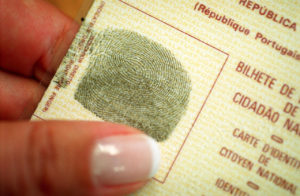
Portuguese citizenship is hot. The latest report by the borders agency SEF shows that last year more than 74,000 foreigners applied for Portuguese nationality. For the first time in history, the country’s foreign resident population exceeds half a million people (5% of the total population).

Most requests for citizenship are related to naturalization and reunion. Foreigners who acquired citizenship in 2019 came from Brazil (23.000), Israel (18.500), Cape Verde (6500), Angola (3000), Ukraine (2500), Guinea-Bissau (2500), and Turkey (1500).
Brazilians remain the largest foreign resident community in Portugal (with 150.000, representing 26% of last year’s total), followed by Cape Verdeans, Brits, Romanians, Ukrainians, Chinese, Italians, French, and Angolans.

Last year also saw a notable increase in the number of Indians and Nepalese coming for work. There are now approximately 18,000 Indians and 17.000 Nepalese legally living in the country.

Asylum applications increased as well by 45% last year, reaching 1850, the highest since 2015. The majority were single men from the African continent.

Even the Golden Visa program has seen an uplift of applications in the first quarter of 2020. Between January and April, 260 applicants and 515 dependents received their residence cards. Although the Golden Visa program was due to be curtailed in the 2019 State Budget, it will be continued in the light of the coronavirus pandemic until 2021.

On the contrary, markedly fewer refugee statuses were granted citizenship (183 in 2019 against 286 in 2020), predominantly to nationals of Asian countries.
However, as part of a European reallocation program, Greece finally succeeded in relocating 25 Afghan boys between 15 an17 years of age from their overcrowded migrant camps to Portugal. Besides Germany, the UK, and Luxembourg, Portugal is one of the few countries in the EU that in fact responds to the Greek request. The intention is to host 250 unaccompanied minors by the end of the year.

In contrast to other countries aiming to reduce immigration, the Portuguese socialist-led minority government wants to attract more migrants, who it says are needed due to the country’s low birth-rate and aging population.

Portugal is one of the 10 EU states where fewer than 5% of residents are foreign-born. It is in this light that Parliament just before the holidays approved Portuguese nationality at birth for children of legal immigrants who have lived in the country for at least one year.
Keep fit — Fique saudável (pic Público/Sapo)


